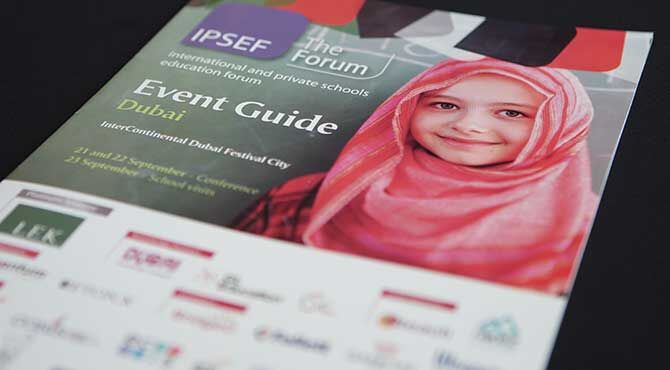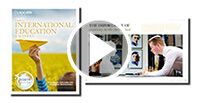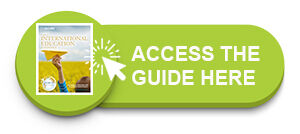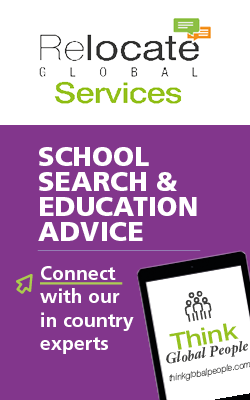Examining the future of education in the Middle East
Why is the Middle East a hot spot for international education and what are the opportunities for future growth? The IPSEF 2018 conference in Dubai looked at the latest education statistics and trends in the region.

Education moving with the times
Looking back on the past four years of IPSEF Dubai, the programme has moved as quickly as the schools in the region. 2014’s conference focused on structuring the school business, licenses and accreditation with little or no mention of marketing, student and teacher happiness or wellbeing. IPSEF 2018 saw a very different programme with presentations featuring wellbeing, happiness, eco-ethical education, confidence and leadership, sustainable schools, USP, personalised learning, online teaching and entrepreneurship being taught in schools.Other news from IPSEF Dubai: Middle East: UAE enrolment growth stimulates demand for schools
Middle East: UAE enrolment growth stimulates demand for schools
The private education sector in Dubai has come a long way in a very short time. Ten years ago Dubai had 143 schools and, according to Dubai’s education regulatory authority – the Knowledge and Human Development Authority (KHDA), today there are 206, in line with the Dubai population growth. Between 2007 and 2017, Dubai’s population grew from 1,529,792 to 2,976,455. In 2017 there were 24,047 expat births.
Revenue increase of 13% in three years
Ashwin Assomull, Managing Director, L.E.K. Consulting presented their positive findings on the UAE K-12 education landscape and said that he saw no reason for pessimism, particularly as Dubai and the UAE remain attractive destinations because of the safety of the country, the beneficial geographic location and the cultural setting.Leading the Middle East’s private education sector, L.E.K.’s research shows a 13% increase in revenue from 2015 to 2018 over 194 schools supporting 281,432 pupils in the private K-12 market. Factors for sustained investment and demand for school places include the ‘socioeconomically diverse expats with a range of curriculum needs and tuition ranges from as low as USD 1000 to USD 25000’ per annum. L.E.K. also sees a migration to the private education sector ‘from the public system’.Reassuring quality assurance programme
There are just under 200 different expat nationalities based in Dubai and parents can now thoroughly screen Dubai’s private schools and, with the greater choice on offer, consider curricula, languages, location, pupil numbers and fees before making a decision regarding their child’s education.The KHDA has been instrumental in providing regulated and transparent information about all schools in the private education sector as well as classifying schools through an inspection framework and rating accordingly: outstanding, very good, good, acceptable or weak. In fact, according to L.E.K, the KHDA is ‘frequently sited as a best-in-class regulator globally’.Read more about education in the Middle East in our Guide to International Education & Schools 2018/19 which is packed with expert tips and information for those relocating and the professionals supporting them.
“Today, parents have choice. Today, our expectations of education are different”, said Dr Abdulla Al Karam, director general of the KHDA, in his keynote speech at IPSEF 2018.This choice is seen by Fiona Milner, managing director of Gabbitas, one of the region’s leading providers of school business services. Fiona understands the need for experts to work alongside families to help them identify the best educational opportunities for their child.
Schools need to differentiate in a crowded marketplace
Dr Al Karam pointed out that schools have to think carefully about how they will stay competitive in the current market. This was reiterated by Simon Noakes, Founder & CEO of Interactive Schools who gave some clear advice to schools to “stand out and be different”, not simply by creating marketing noise where the best educational opportunities can be lost, but by venturing further by asking definitive questions such as “Are they fit for purpose?”Elise Tarvainen of Isku Interior Oy explained how Finnish schools are more than just a ‘box’ – designing bright open spaces, even school corridors, using furniture which can be used in a variety of teaching scenarios. Finland is a forerunner worldwide in considering student and teacher wellbeing and Elise believes schools should be a “source of inspiration, learning and creating something new”.She explained that evolving technology and the digitisation of teaching and learning “are now an inseparable part of the learning environment, their functionality and development” and that joy in learning should be an integral part of school communities.A focus on wellbeing in schools
The KHDA are also focussing on happiness and wellbeing. Dr Al Karam explained that there was a “lot of room for improvement” after the first Dubai Student Wellbeing Census was carried out by the KHDA in 2017. Of the 65,000 middle school students surveyed across 168 schools, 84% considered themselves ‘to be happy most of the time’.Alongside the Wellbeing Census, assessment data and the effective use of such information helps international schools to improve student wellbeing, looking at the whole child rather than churning them through exam factories. As James Neill, director of GL Education explained, this helps build an extra dimension to support school improvement.Developing schools in the right location
“Location, location, location,” said Fiona Cottam, principal and chief academic officer of Hartland International School. Schools located in areas that are currently being developed will see increased demand as the areas become more populated and may find themselves becoming a social hub for the whole community. Bringing school design back to the classroom, Alison Watson, chief executive of Class Of Your Own (COYO), came up with the novel idea of involving school children in ‘design, build, construct!’ resulting in some very successful and innovative designs from her COYO pupils. Alison believes that school children benefit greatly, creating a developmental environment for them to consider maths and science in a working context.COYO now works with a number of international companies including Arcadis, who have a strong client base in the Middle East and 27,000 employees worldwide. Arcadis have implemented COYO, helping to bring students to the forefront of an increasingly complex construction arena. This type of school/industry relationship is of great benefit, allowing children to use their education in a ‘grown up’ context and contributing to the overall happiness and wellbeing of the child.In designing new schools, sustainability has become a buzzword in Dubai. Sustainable City – the first net zero energy development in Dubai – has its own school, Fairgreen, in addition to a mosque, hydroponic farming area providing local supermarkets with fresh herbs and residential villas and apartments.Looking to the future of education
Other sessions at IPSEF examined the future of education. Jonathan Dey, consultant principal and CEO of GEMS, looked at how schools can meet future needs and use the curriculum for school improvement. At the same time he highlighted the importance of remaining true to ‘Arabic roots and identity’ of the region.Look out for the Winter issue of Relocate Magazine with a special focus on Education in the Middle East. Get in touch if your organisation would like to be featured.
For more education and school related news, visit our Education and Schools pages.Access hundreds of global services and suppliers in our Online Directory
©2026 Re:locate magazine, published by Profile Locations, Spray Hill, Hastings Road, Lamberhurst, Kent TN3 8JB. All rights reserved. This publication (or any part thereof) may not be reproduced in any form without the prior written permission of Profile Locations. Profile Locations accepts no liability for the accuracy of the contents or any opinions expressed herein.
























